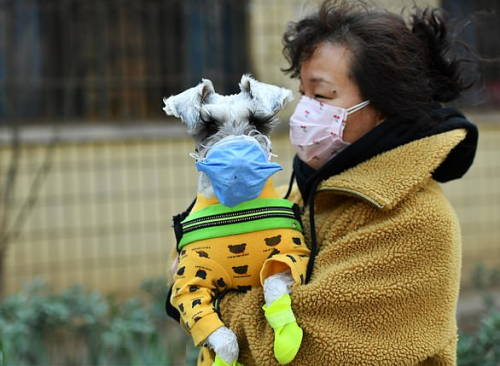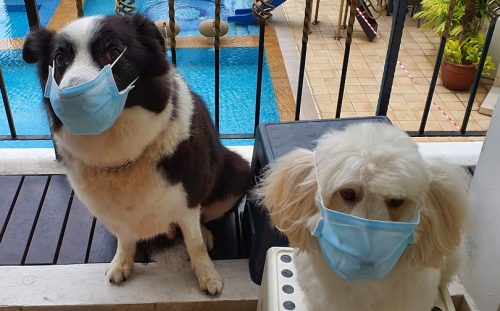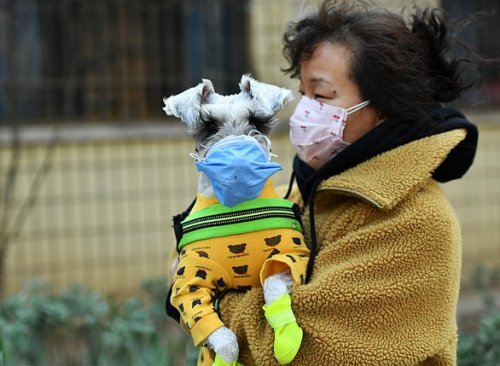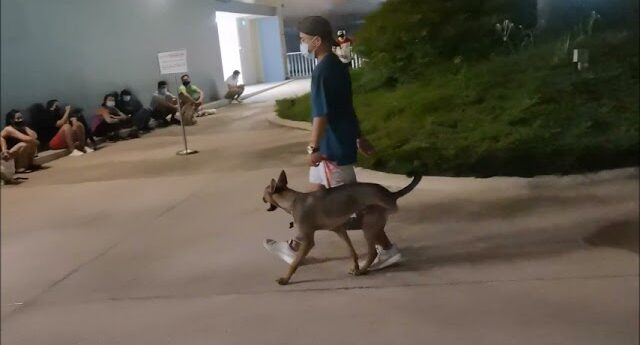How Are Dogs Affected By COVID-19

Can dogs spread coronavirus?
How Are Dogs Affected By COVID-19?
In March 2020, the World Health Organization declared the novel coronavirus a global pandemic due to its potential spread to different parts of the world. Due to this, so many pets owners are already anxious and eager to know what this means for the health of their canine friend.
Fears over canine companions A statement by the World Organization for Animal Health states that: “The current spread of COVID-19 is a result of human-to-human transmission. To date, there is no evidence that companion animals play a significant role in spreading the disease. Therefore, there is no justification in taking measures against companion animals, which may compromise their welfare.” Despite this quote, the current pandemic is steadily driving fears among pet owners. Indeed these fears are valid because scientists believe that the coronavirus disease originated in the Chinese horseshoe bats, moved to the pangolins before humans. Interestingly, not too long ago, some tigers and lions at the Bronx Zoo while a dog in Hong Kong tested positive for the virus.
All over the world, lots of dogs are being abandoned by their owners who feared that they may be vectors of this virus. Does COVID-19 Affect Dogs Yes! Dogs can contract coronaviruses. However, the type which harms them is known as the canine respiratory coronavirus. Indeed, there are cases of dogs testing positive to COVID-19. One such case is the dog which tested positive for COVID-19 in Chapel Hill, North Carolina, USA.
One fact that is worthy of note is that three family members in that home tested positive for the virus. In Asia, Hong Kong, to be precise, two pet dogs tested positive for COVID-19. Like the case in the US, both dogs lived in homes with their owners who also tested positive for COVID-19. However, none of the dogs showed any signs of illness from the virus.
Can dogs spread coronavirus? One of the questions many pet owners ask is whether their dog’s fur or skin could be contaminated by the virus and then spread it to humans. The simple answer to that question is “yes.” It is possible for infected persons to sneeze or touch their dog, and then the animal becomes a source of infection for other humans. Research has shown that the virus can live under laboratory conditions for as long as three days on plastic and steel and for shorter periods on soft surfaces like cardboard and fur.
Given the fact that there’s still a lot that’s yet to be known about the disease, experts recommend that people infected with the virus should restrict contact with their dog and other animals, just like they would with other people. If you have the virus, always wash your hands for at least 20 seconds, and don’t let your dog lick your face since the virus is in your secretions. Also, it’s best to stay away from your pet and let another member of your household care for your dog.
How to protect your dog from COVID-19 Since your pet is at minimal risk of contracting the virus, you don’t need to do anything other than practice healthy habits around your pet. Here are some steps to follow to protect your beloved pet from the infection.
1. Wash your hand often with soap and water for at least 20 seconds, especially after handling animals, their food, waste, or supplies.
2. Keep your pet away from sick people.
3. Stay home when you are sick and minimize contact with humans and animals alike.
4. Clean and frequently disinfect objects touched or handled by sick people.
5. Take your dog to the veterinarian regularly for a checkup, and don’t hesitate to ask questions about your pet’s health.
Takeaway Dogs that have been affected by COVID-19. While there haven’t been direct casualties as a result of the pandemic, their relationships with their owners have been affected in one way or the other.
However, there should be no reasons for pet owners to worry at the moment because the strain of the virus currently posing a global health challenge doesn’t affect dogs. Nevertheless, if you notice changes in your dog’s health, it is vital to contact your pet clinic.











